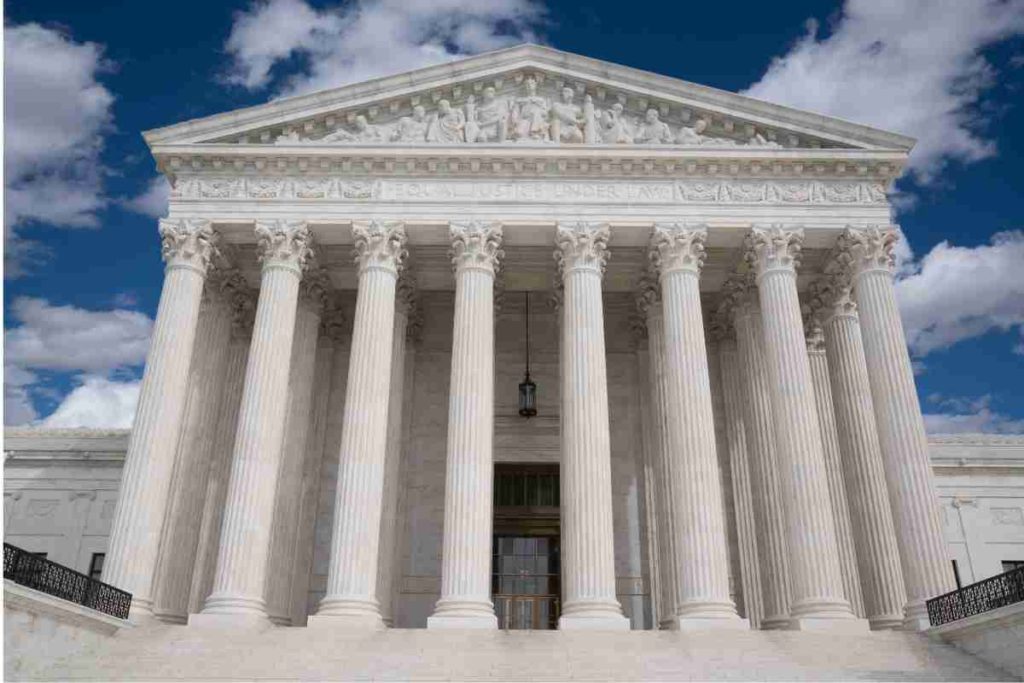For the time being, the Supreme Court has allowed Texas’ abortion law to remain in effect.
WASHINGTON (CSU) – The Supreme Court denied a request by abortion clinics in Texas for a federal court to take immediate action on their challenge to a state law that prohibits most abortions after six weeks. According to the three liberal justices who dissent, the actual consequence of the ruling was to keep the statute in place permanently.
In dissent, Justice Sonia Sotomayor said, “This case is a tragedy for the rule of law and a great disservice to women in Texas, who have a right to regulate their own bodies.”
The majority provided no reasoning for its judgment, which came after a decision last month that allowed providers to sue at least certain state officials in an attempt to prevent or restrict the legislation. The dissenting justices said on Thursday that the triumph was hollow since the United States Court of Appeals for the Fifth Circuit in New Orleans declined to restore the case to the trial judge and instead sent it on a legal detour to a state court.
“It has been nearly four months since Texas Senate Bill 8 went into force,” noted Justice Sotomayor. “Through a convoluted private bounty-hunter mechanism that contradicts over 50 years of this court’s decisions, the statute instantly decimated access to abortion care in Texas.”
“Today, for the fourth time, this court declines to protect pregnant Texans from egregious violations of their constitutional rights,” she wrote, referring to a series of rulings beginning in September that allowed the law to go into effect despite Supreme Court precedents prohibiting states from prohibiting abortions before fetal viability, which is usually around 23 weeks.
“One month after ruling that the petitioners’ litigation might continue in part,” Justice Sotomayor wrote, “the court countenances another breach of its own directives.” “Instead of preventing a Fifth Circuit panel from indulging Texas’ latest delay tactics, the court permits the state to prolong the loss of its people’ federal constitutional rights via procedural trickery once again.”
Rather than remanding the matter to the trial court, which was expected to issue an injunction, the Fifth Circuit requested the Texas Supreme Court to decide on whether the state authorities named in the United States Supreme Court’s ruling last month had the authority to implement the abortion statute.
In a second dissent, Justice Stephen G. Breyer argued that the appeals court’s actions amounted to disobedience of his court’s December verdict. “The court of appeals rejected our ruling,” he stated.
Justices Breyer and Sotomayor concurred in their dissents, while Justice Elena Kagan concurred in both.
The Supreme Court, according to Nancy Northup, head of the Center for Reproductive Rights, which represents abortion clinics, “is permitting the state of Texas to deprive individuals of a fundamental right.”
Typically, state officials would be named as defendants in a lawsuit attempting to overturn a statute because it is unconstitutional. However, the Texas legislation, which provides no exceptions for pregnancies caused by incest or rape, prohibits most state authorities from implementing it and instead empowers private persons to sue anybody who performs or “aides and abets” abortion.
The patient may not be sued, but physicians, clinic employees, counselors, persons who assist pay for the operation, and even an Uber driver transporting a woman to an abortion facility might all be named as defendants. Plaintiffs, who do not need to reside in Texas, have any connection to the abortion, or prove any harm as a result of it, are entitled to $10,000 in damages and their legal expenses if they win. Prevailing defendants do not have the right to legal fees.
“This structure was meant to make it more difficult for courts to stop the law’s implementation on a statewide level,” Justice Sotomayor wrote.
However, the Supreme Court permitted the litigation against state licensing authorities, such as the executive director of the Texas Medical Board, who are empowered to initiate disciplinary action against abortion providers who violate Texas law, in December.
“However, after this court announced its ruling,” wrote Justice Sotomayor on Thursday, “the lawsuit halted.” The Fifth Circuit should have returned this matter to the district court right away so that it might decide whether to provide preliminary relief. Texas, on the other hand, sought to certify to the Texas Supreme Court the matter that this court had recently decided: whether state licensing officers had the jurisdiction under state law to implement S.B. 8.”
After hearing oral arguments, the Fifth Circuit approved Texas‘ motion.
“By endorsing this method,” said Justice Sotomayor, “the panel rejected this court’s unambiguous message that this case should proceed – and go quickly.”
Judge Sotomayor noted that the abortion providers’ success in last month’s ruling was limited and restricted, and that they had now been effectively stripped of what little they had achieved.
“Today’s ruling demonstrates that any optimism that the December decision would have protected the Constitution’s protections in this instance was illusory,” she wrote.
“As it turns out, Texas did not even have to modify its legislation to avoid the scant redress made available by this court,” she wrote. “Instead, Texas bet that this court did not mean what little it stated in the ruling, or, at the very least, that this court would not stand by those few words.” “That bet paid off.”
Follow us on Twitter





